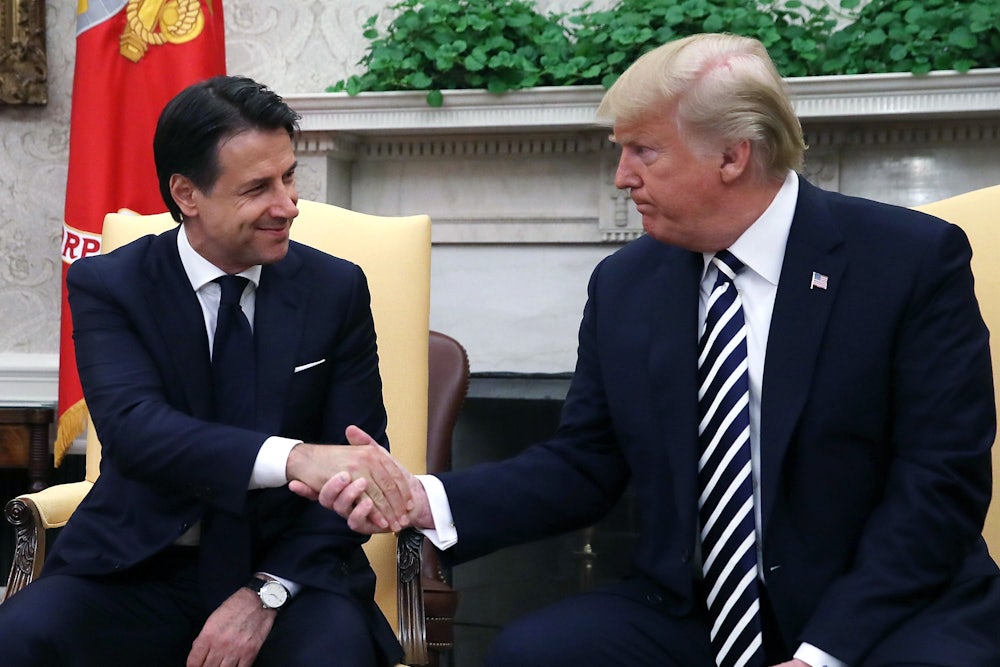Meeting with newly-elected Italian Prime Minister Giuseppe Conte in the White House, President Trump singled out for commendation Italy’s new tough line on immigration. As a nationalist and populist, Conte has more in common with Trump than most American allies.
“I agree very much with what you are doing with respect to migration, and illegal immigration, and even legal immigration,” Trump said to Conte. “He has taken a very firm stance on the border, a stance that few countries have taken. And frankly he is doing the right thing in my opinion.” These kind words are all the more striking given the fact that Italy, contrary to Trump’s preferred policy, is falling behind in its military spending. They illustrate, perhaps, that nativism is more important to Trump than NATO.
Trump’s warm words for Conte illustrate that the president’s “America First” foreign policy is in practice a policy of building closer ties with governments that share the president’s own politics. As Max Fisher of The New York Times observes, this is a genuine innovation given previous American governments have tried to work with allies of varying political orientation.
There’s been a lot written on Trump’s hostility to traditional allies, but it increasingly appears that this hostility is specific to allies with centrist or left governments.
— Max Fisher (@Max_Fisher) July 30, 2018
He’s proven much more supportive of allies (and some non-allies!) with right-wing governments. https://t.co/X18zmcr3fF
Trump’s stance on the UK – run by a right-wing government – is instructive.
— Max Fisher (@Max_Fisher) July 30, 2018
His treatment of the UK seems to vary significantly based on whether May governs as more *ideologically* right or *ideologically* neutral, particularly on Brexit and immigration.
It’s obviously not unusual for a country to align itself with other nations based on shared values, but Trump appears to be reorienting American relationships based on ideological affinity that is much more narrowly partisan.
— Max Fisher (@Max_Fisher) July 30, 2018
We’ve talked a lot about how partisan polarization reshapes American domestic politics, but the long-term effect may be that the United States has two entirely distinct sets of alliances based on the party in power. Not a recipe for long-term American power in the world.
— Max Fisher (@Max_Fisher) July 30, 2018
